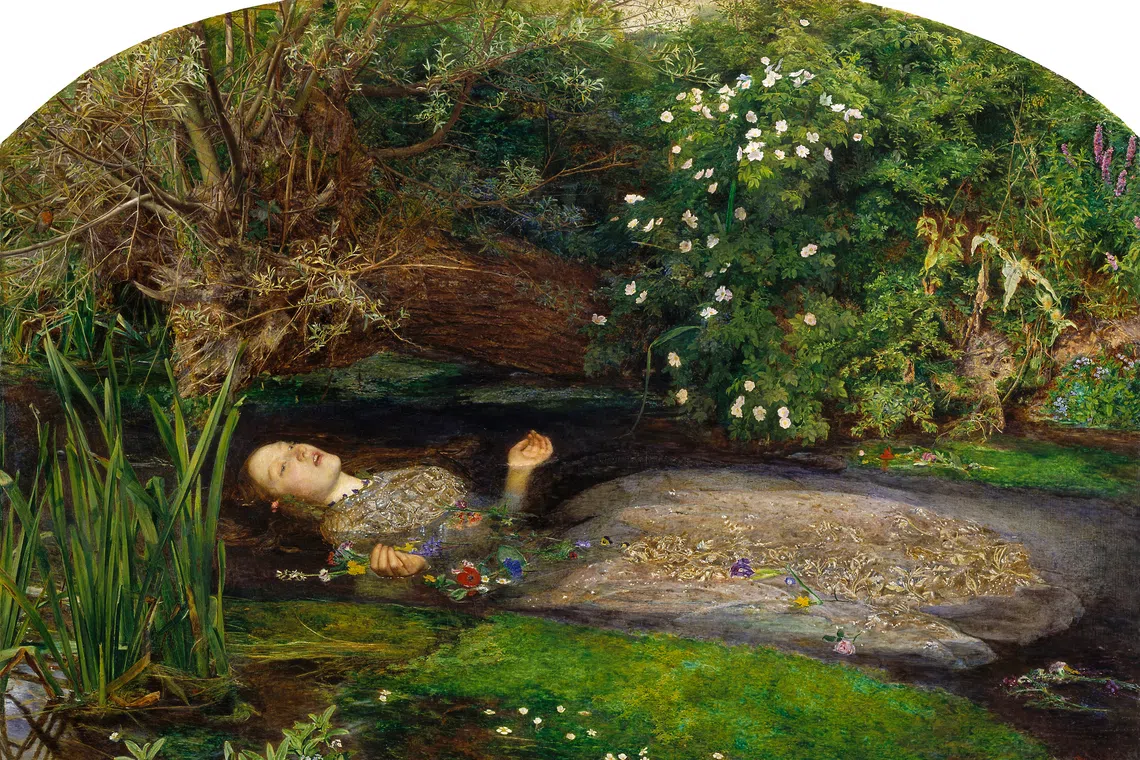For subscribers
In Taylor Swift’s version, Ophelia has a fairy-tale ending
The alluring ambiguity of Shakespeare’s tragic heroine has inspired artworks and songs for centuries.
Sign up now: Get ST's newsletters delivered to your inbox

The alluring ambiguity of Shakespeare’s tragic heroine Ophelia has inspired artworks and songs for centuries.
PHOTO: JOHN EVERETT MILLAIS/TATE GALLERY
“No one likes a mad woman,” Taylor Swift sings on a haunting track off her 2020 album Folklore.
It’s not exactly true: Swift loves a mad woman. Her discography teems with fiery depictions of female characters who have traditionally been dismissed and even punished by patriarchal culture for being too much. Consider the burned witches of I Did Something Bad, the “insane” former girlfriend she humorously portrays in the Blank Space music video or that titular Mad Woman who taunts her detractors with the line: “Every time you call me crazy, I get more crazy – what about that?”


